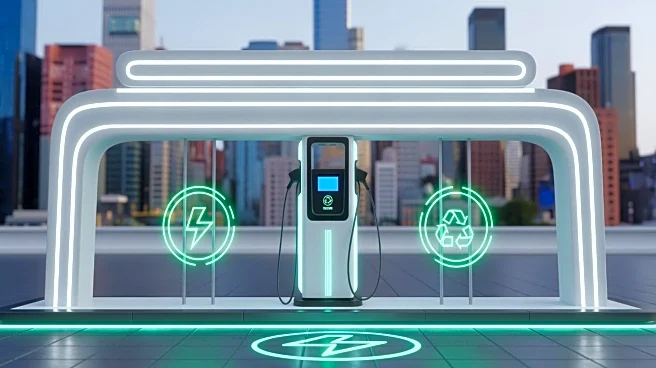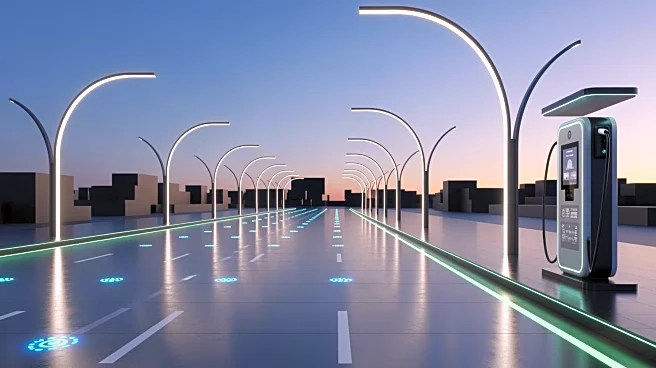What's Happening?
BYD is increasing its activities in South Africa, a market with historically low electric vehicle sales due to high import duties and limited affordable options. The company has launched several models, including the Dolphin Surf and Shark PHEV pickup,
aiming to boost EV adoption. Despite the absence of official sales figures, anecdotal evidence suggests growing visibility of BYD vehicles on South African roads. BYD's collaboration with Eskom, South Africa's national electricity utility, focuses on expanding public charging infrastructure and supporting the country's decarbonization efforts. The partnership includes plans for renewable-powered charging hubs and integrating EVs into demand-side management strategies.
Why It's Important?
BYD's expansion in South Africa represents a significant step in addressing the country's low EV adoption rates. The introduction of affordable models like the Dolphin Surf could catalyze market growth, making eco-friendly driving accessible to more consumers. The collaboration with Eskom highlights the importance of infrastructure development in supporting EV adoption. This move aligns with global trends towards sustainable transportation and positions South Africa as a potential hub for EV growth. The partnership could also stimulate local economic development through job creation and skills development in the EV sector.
What's Next?
BYD plans to set up 300 ultra-fast charging stations in South Africa, starting in 2026, which could significantly enhance the country's EV infrastructure. The rollout of these stations, including megawatt charging options, is expected to boost consumer confidence in EVs and drive sales. The collaboration with Eskom may lead to further initiatives aimed at integrating renewable energy solutions into the transportation sector. As BYD ramps up its activities, other manufacturers may follow suit, increasing competition and innovation in the South African EV market.
Beyond the Headlines
BYD's expansion could influence cultural perceptions of electric vehicles in South Africa, shifting consumer attitudes towards sustainable transportation. The partnership with Eskom may raise ethical considerations regarding the balance between economic growth and environmental sustainability. Long-term, this development could contribute to a broader shift towards renewable energy adoption in South Africa, impacting the country's energy policies and environmental goals.















